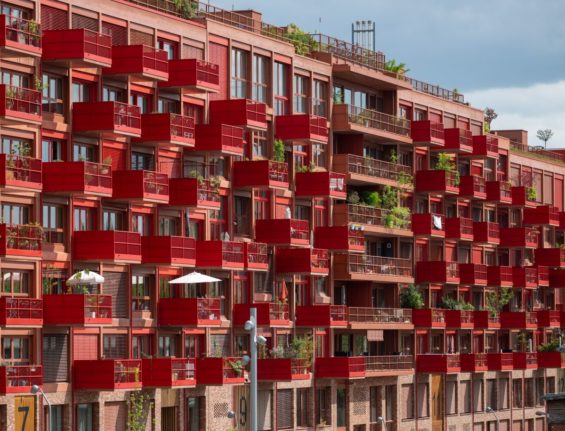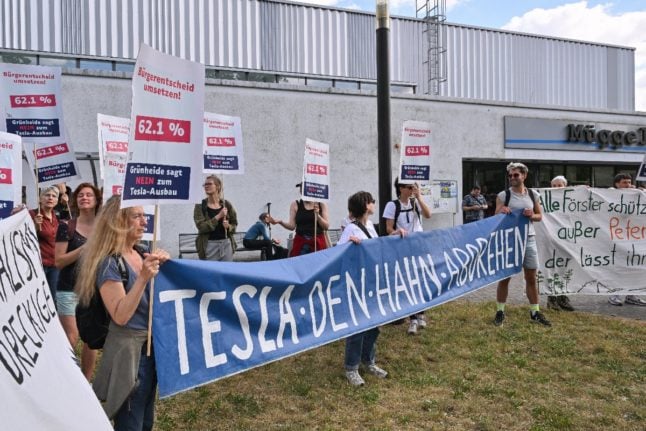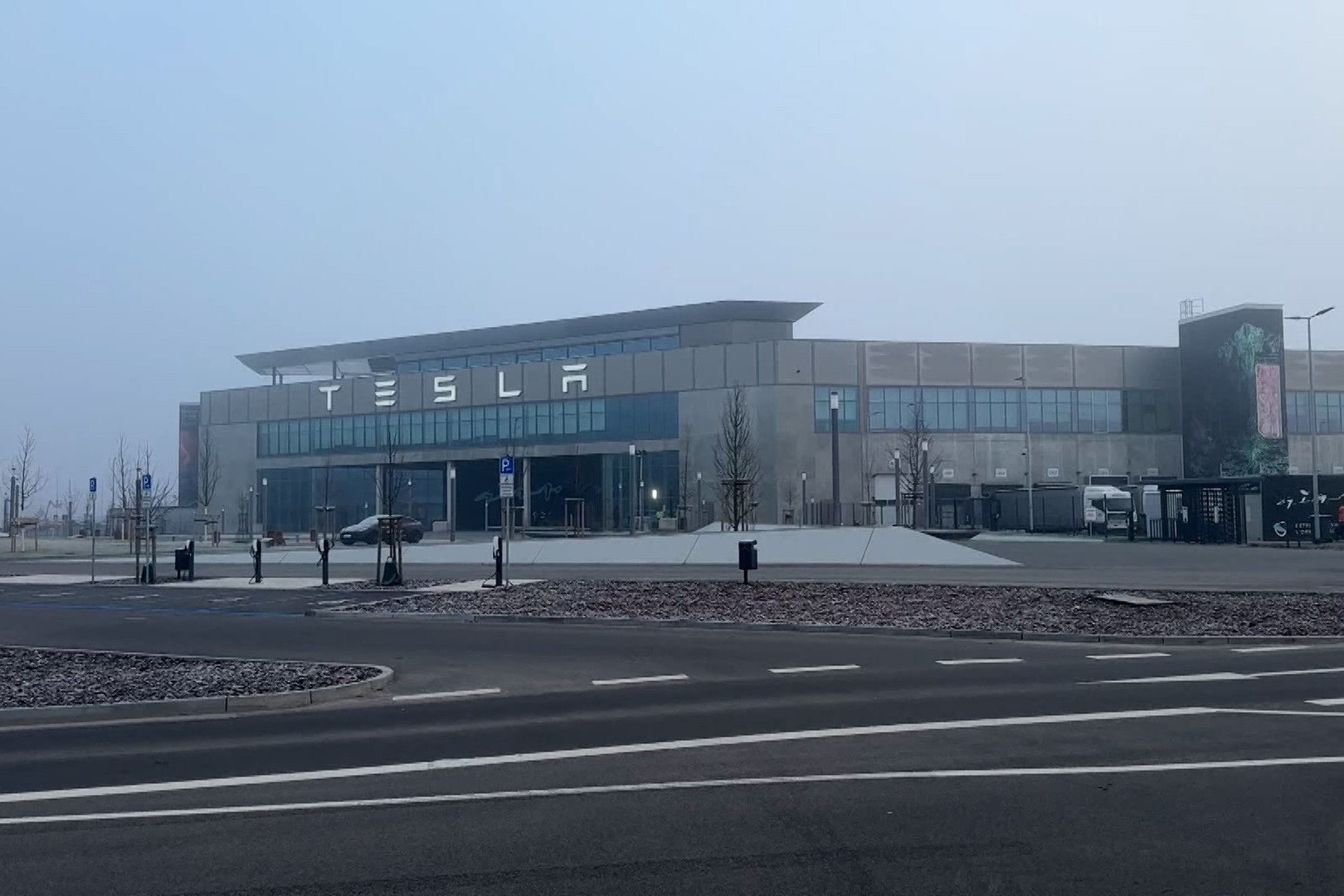A report released Wednesday by two leading real-estate firms found that asking rents in Berlin rose by 18.3 percent to €13.60 per square metre despite the rent brake that’s meant to control the increase.
The report was compiled by real estate financier Berlin Hyp and the global real estate service provider CBRE.
The report also notes that the number of rental apartments offered in Berlin shrank drastically.
In the real estate market however, prices have come down somewhat. The report suggests asking prices for apartment buildings fell by 11.7 percent, and asking prices for condominiums fell slightly by 1.4 percent.
These findings are based on evaluations of 23,300 rental offers, around 28,400 purchase price offers for condominiums and apartment buildings as well as 220 new construction projects with around 34,900 apartments in Berlin for 2023.
Where are rents the highest and the lowest in Berlin?
According to the report, Berlin’s rental prices top out in Charlottenburg and Friedrichshain – at rates up to €26 per sq/m.
Marzahn was the kiez or neighbourhood that had the lowest rents, at €16.03 per sq/m at the most. Spandau and Reinickendorf were the next cheapest neighbourhoods.
The range of rent prices was wide across every neighbourhood in Berlin. Across the capital city, rents on the bottom end were as low as €6 per sq/m – amounting to a difference of nearly €20 per sq/m between rents in the upper and lower market segments.
READ ALSO: Is there any hope for Berlin’s strained rental market?
While Berlin’s rapidly increasing rents combined with its severe housing shortage makes moving to or within the city notoriously frustrating, it does not have the highest rent prices in Germany.
According to Statista, Munich has the highest rent prices by far, at a rate of €19.23 per sq/m in 2023. Frankfurt am Main had the next highest rent on average, at €14.80 per sq/m.
Close behind, Stuttgart has held the third highest rents in Germany in recent years, but as of 2023 it looks like Berlin has caught up.
Hamburg, Düsseldorf and Cologne all had rent prices between €12 and €13 per sq/m on average.
Is the rent price brake failing?
In an attempt to slow the rapid rise of rents in competitive housing markets, the German government introduced a rental price brake (Mietpreisbremse) in 2015, which was recently extended until 2029.
But it appears that the rent brake has done little to slow the rise of rents in Germany’s most competitive markets.
The Berlin Tenants’ Association (BMV) welcomes the extension of the rent brake, but says that it needs urgent tightening and strengthening to adequately keep rents affordable.

The rent brake is intended to prevent landlords from asking for rents more than 10 percent above local comparative rates. But with no significant consequences for violating the rent brake rule, the BMV says landlords regularly raise rents well above the legal limit.
According to the BMV, rents were excessive in 98 percent of the cases that it reviewed in 2023.
“Many landlords ignore the requirement, and try to circumvent the rent brake and demand excessive rents,” says Managing Director of the Berlin Tenants’ Association, Ulrike Hamann-Onnertz.
“At the same time, the enforcement of the rent brake is associated with a great deal of effort and legal risk for tenants.”
Renters in Germany’s high-demand rental markets can invoke the rent brake to reduce their rent, if they find that their ‘cold rent’ (the base rent without additional costs) is set more than 10 percent above the average rate for a comparable unit in the same neighbourhood. Average rates are recorded local indexes, called Mietspiegel. Here’s one for Berlin.
READ ALSO: German rent brake to be extended until 2029: What you need to know
However, there are a number of exceptions to the rent brake. Perhaps the most frustrating of which is a loophole that allows landlords to maintain an overpriced rent if the previous tenant did not challenge it.
“Rents agreed in violation of the rent brake can also be included in the rent index and in turn lead to an upward spiral of rents,” Hamann-Onnertz said.
The BMV recommends three policy adjustments to fix the holes in the rent brake which include: applying sanctions to landlords who violate the rent brake, eliminating most of the exceptions to the rent brake, and supporting tenants’ in enforcing their rights through municipal inspection bodies.
Whether policymakers in Berlin (and beyond) will heed any of the BMV’s advice is another story.
READ ALSO: ‘Tense housing situation’: Why a Berlin renter can’t be evicted for two years




 Please whitelist us to continue reading.
Please whitelist us to continue reading.
Member comments